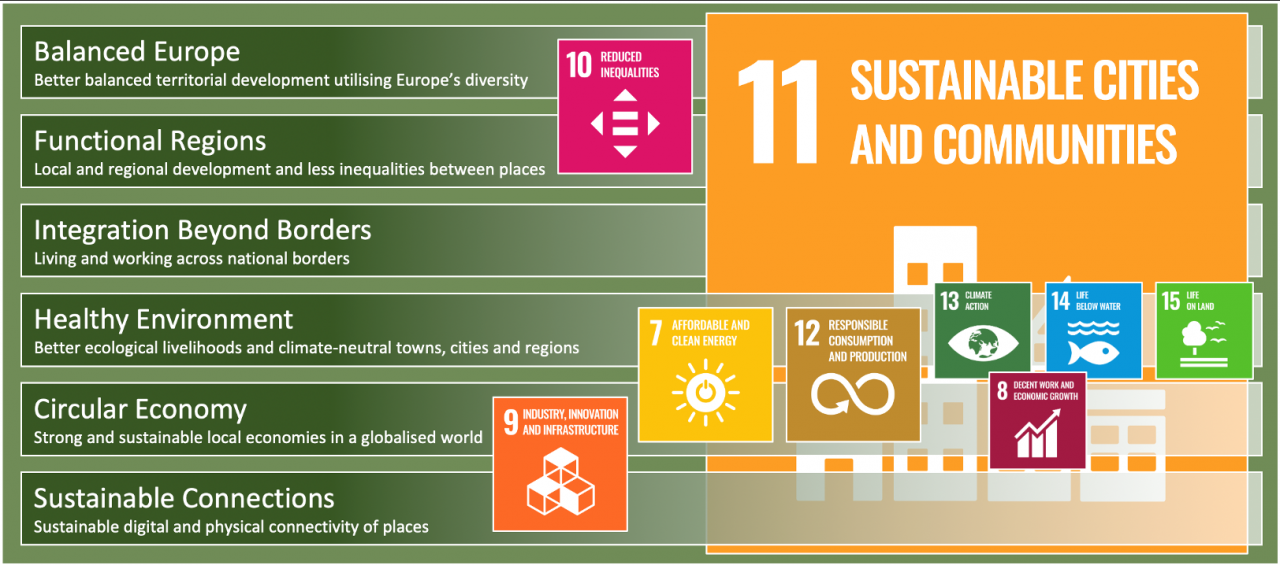An agenda for the future of global business – As we embark on a journey to envision the future of global business, let’s dive into a comprehensive agenda that addresses the critical challenges and opportunities facing our interconnected world. From economic shifts to technological advancements, sustainability concerns to workforce dynamics, this agenda will serve as a roadmap for businesses to navigate the ever-evolving global landscape.
This exploration will delve into the latest technological advancements transforming business operations, empowering companies to leverage AI, automation, and cloud computing for competitive advantage. We’ll also examine the growing importance of sustainability and climate change, highlighting the risks and opportunities businesses face in mitigating their environmental impact.
Global Economic Outlook

The global economy is facing a number of challenges and opportunities in the coming years. The COVID-19 pandemic has had a significant impact on the global economy, and its full effects are still being felt. Other challenges include the rising cost of living, the ongoing trade war between the United States and China, and the climate crisis.
Despite these challenges, there are also a number of opportunities for businesses in the coming years. The global economy is expected to continue to grow, and there are a number of new technologies that are creating new opportunities for businesses.
Key Economic Trends
There are a number of key economic trends that will shape the future of global business. These trends include:
- The rise of the digital economy
- The increasing importance of sustainability
- The aging of the global population
- The rise of emerging markets
Businesses that are able to adapt to these trends will be well-positioned to succeed in the future.
Technological Advancements
Technological advancements are rapidly transforming global business, creating new opportunities and challenges for companies of all sizes. From artificial intelligence (AI) to automation and cloud computing, technology is disrupting traditional business models and driving innovation.
Artificial intelligence (AI) is one of the most significant technological advancements impacting global business. AI algorithms can process vast amounts of data, identify patterns, and make predictions, enabling businesses to automate tasks, improve decision-making, and gain a competitive advantage.
Impact of AI on Business Operations
- Automated decision-making:AI algorithms can analyze data and make decisions without human intervention, freeing up employees to focus on more strategic tasks.
- Improved customer service:AI-powered chatbots and virtual assistants can provide 24/7 customer support, resolving issues quickly and efficiently.
- Enhanced fraud detection:AI algorithms can identify suspicious patterns and detect fraudulent activities, protecting businesses from financial losses.
Automation is another key technological advancement driving global business transformation. Automation involves the use of technology to perform repetitive or routine tasks, increasing efficiency and productivity.
Benefits of Automation for Businesses
- Reduced labor costs:Automation can replace human workers in performing repetitive tasks, reducing labor costs and increasing profit margins.
- Improved accuracy:Automated systems are less prone to errors than human workers, leading to higher quality output and reduced rework.
- Increased efficiency:Automation can streamline processes and reduce the time it takes to complete tasks, increasing overall efficiency.
Cloud computing is a third major technological advancement reshaping global business. Cloud computing allows businesses to access and store data and applications over the internet, providing flexibility, scalability, and cost savings.
Advantages of Cloud Computing for Businesses
- Scalability:Cloud computing allows businesses to scale their IT infrastructure up or down as needed, meeting changing demands without investing in additional hardware.
- Cost savings:Cloud computing eliminates the need for businesses to purchase and maintain their own IT infrastructure, reducing capital and operational costs.
- Increased flexibility:Cloud computing allows employees to access data and applications from anywhere with an internet connection, enabling remote work and collaboration.
Businesses that embrace these technological advancements can gain a competitive advantage by automating tasks, improving decision-making, and reducing costs. By leveraging technology, businesses can transform their operations, increase productivity, and drive growth in the global marketplace.
Sustainability and Climate Change
Sustainability and climate change have become increasingly important considerations for global businesses. The risks and opportunities associated with climate change can have a significant impact on a company’s operations, supply chain, and financial performance. As a result, businesses need to develop strategies to address these issues and mitigate their environmental impact.
An agenda for the future of global business includes addressing the challenges of globalization, technological advancements, and the ever-changing political landscape. To stay ahead of the curve, businesses need to adopt innovative strategies and embrace emerging technologies like AI and automation.
Furthermore, exploring the viability of social media platforms such as can you get truth social on an android phone can provide valuable insights into consumer behavior and market trends. By leveraging these advancements, businesses can position themselves for success in the rapidly evolving global marketplace.
Climate change poses several risks to businesses, including:
- Increased frequency and severity of extreme weather events, such as hurricanes, floods, and droughts, can disrupt supply chains, damage infrastructure, and cause business interruptions.
- Rising sea levels can threaten coastal businesses and infrastructure, leading to property damage and loss of productivity.
- Changes in temperature and precipitation patterns can impact agricultural yields, affecting the availability and cost of raw materials.
However, climate change also presents opportunities for businesses. By investing in sustainable practices, companies can reduce their environmental impact, improve their reputation, and attract environmentally conscious consumers. Some of the best practices for businesses to reduce their environmental impact include:
- Investing in renewable energy sources, such as solar and wind power.
- Improving energy efficiency in operations and supply chains.
- Reducing waste and emissions through recycling and sustainable packaging.
- Sourcing materials from sustainable suppliers.
By taking these steps, businesses can help to mitigate the risks of climate change and capitalize on the opportunities it presents. Sustainability and climate change are critical issues that global businesses need to address in order to remain competitive and successful in the future.
Globalization and Trade
Globalization has interconnected the world’s economies, creating opportunities for businesses to expand globally. It has facilitated the flow of goods, services, capital, and people across borders, leading to increased trade volumes and economic growth.The rise of globalization presents challenges and opportunities for global businesses.
Challenges include navigating cultural differences, complying with varying regulations, and managing supply chains across multiple countries. Opportunities include accessing new markets, diversifying revenue streams, and leveraging global talent.
Free Trade Agreements and International Organizations
Free trade agreements (FTAs) aim to reduce or eliminate tariffs and trade barriers between participating countries. They facilitate the movement of goods and services, promoting economic growth and efficiency.International organizations such as the World Trade Organization (WTO) play a crucial role in shaping global trade.
The future of global business is complex, with many factors to consider. However, one thing is for sure: technology will play a major role. For example, can you text with an android tablet ? If so, this could have a major impact on how businesses communicate with customers and employees.
The ability to text with an android tablet would open up new possibilities for communication, collaboration, and customer service. As technology continues to evolve, it is important for businesses to stay ahead of the curve and adopt new technologies that can help them succeed in the future.
The WTO sets rules and provides a forum for negotiating trade agreements, resolving disputes, and enforcing trade rules.
One of the most pressing issues facing global business today is the need to develop an agenda for the future. This agenda must address a wide range of challenges, from climate change to income inequality. Can you install windows 8 on an android tablet ? It is clear that the future of global business depends on our ability to find innovative solutions to these challenges.
Only by working together can we create a more sustainable and equitable future for all.
Workforce Trends: An Agenda For The Future Of Global Business
The global workforce is undergoing significant changes, driven by factors such as demographic shifts, technological advancements, and globalization. These trends are shaping the way businesses operate and manage their workforces.
One of the most notable trends is the aging workforce. In many developed countries, the population is aging, leading to a decline in the size of the working-age population. This trend is expected to continue in the coming years, posing challenges for businesses in terms of attracting and retaining talent.
Managing a Diverse and Remote Workforce
Another key trend is the increasing diversity of the workforce. Globalization and migration are leading to a more diverse workforce, with employees from different backgrounds, cultures, and generations. This diversity can bring many benefits to businesses, but it also presents challenges in terms of managing different perspectives and work styles.
The rise of remote work is also having a significant impact on the workforce. Technological advancements have made it possible for employees to work from anywhere, which is leading to a more flexible and distributed workforce. This trend is expected to continue in the coming years, as businesses recognize the benefits of remote work, such as reduced costs and increased employee satisfaction.
As the world of business continues to evolve, it’s important to consider an agenda for the future. We must address key issues like globalization, technology advancements, and sustainability. Speaking of technology, can you use an xbox one controller on android ? It’s an interesting question that highlights the convergence of gaming and mobile devices.
As we navigate the future of global business, we must embrace innovation and explore new possibilities to stay competitive and drive growth.
Attracting and Retaining Top Talent
In order to succeed in the changing global business landscape, businesses need to be able to attract and retain top talent. This requires a comprehensive talent management strategy that includes:
- Developing a strong employer brand
- Offering competitive compensation and benefits
- Providing opportunities for professional development
- Creating a positive and inclusive work environment
By implementing these best practices, businesses can position themselves as employers of choice and attract and retain the best talent in the global market.
Innovation and Entrepreneurship
Innovation and entrepreneurship are vital for the future of global business. They are the driving forces behind new products, services, and business models. Organizations that embrace innovation and entrepreneurship are more likely to succeed in the competitive global marketplace.
As we envision the future of global business, an agenda that embraces innovation is crucial. One key aspect is the rise of business transactions conducted over electronic networks . This digital landscape enables seamless exchange of goods and services, fostering global collaboration and economic growth.
As we navigate the complexities of the modern business environment, it is imperative to prioritize strategies that harness the power of technology to drive efficiency and enhance competitiveness.
There are a number of challenges associated with fostering innovation and entrepreneurship within organizations. One challenge is that organizations often have a risk-averse culture. This can make it difficult for employees to take risks and experiment with new ideas. Another challenge is that organizations often have a hierarchical structure.
This can make it difficult for new ideas to be heard and implemented.
An agenda for the future of global business must address the increasing interconnectedness of the world. For example, can you video chat between an iPhone and an Android ? This question highlights the need for global businesses to consider the compatibility of their products and services across different platforms and devices.
By addressing these issues, businesses can ensure that they are well-positioned to succeed in the global marketplace.
Despite these challenges, there are a number of best practices that organizations can follow to create a culture of innovation and entrepreneurship. One best practice is to create a culture of trust and respect. This means that employees feel comfortable sharing their ideas and taking risks.
Another best practice is to provide employees with the resources they need to innovate. This includes providing access to funding, training, and mentorship.
Fostering Innovation
- Create a culture of trust and respect.
- Provide employees with the resources they need to innovate.
- Encourage employees to take risks and experiment with new ideas.
- Celebrate success and learn from failures.
- Create a cross-functional team to review and evaluate new ideas.
Corporate Governance and Ethics
Corporate governance and ethics are fundamental pillars for global businesses to operate sustainably and responsibly. They establish frameworks for decision-making, accountability, and transparency, fostering trust and ensuring the long-term success of organizations.
An agenda for the future of global business must include technological advancements and innovations. As an example, can you install windows 10 on an android tablet ? This is a question that many people are asking as the lines between mobile and desktop operating systems continue to blur.
If the answer is yes, it would open up a whole new world of possibilities for businesses. Imagine being able to run your favorite Windows applications on your Android tablet. You could use your tablet for work, school, or play.
The possibilities are endless.
Challenges and Opportunities
- Balancing Stakeholder Interests:Global businesses face the challenge of balancing the interests of various stakeholders, including shareholders, employees, customers, and the broader community.
- Managing Cultural Differences:Operating in diverse global markets requires businesses to navigate different cultural norms and ethical expectations, which can pose challenges in maintaining ethical standards.
- Responding to Technological Advancements:Technological advancements, such as artificial intelligence and data analytics, bring ethical considerations related to privacy, bias, and accountability.
Best Practices
- Establish Clear Ethical Guidelines:Develop comprehensive ethical codes that Artikel expected behaviors, responsibilities, and consequences for violations.
- Foster a Culture of Integrity:Create a workplace environment that values ethical conduct, open communication, and accountability.
- Empower Employees to Report Misconduct:Establish clear reporting channels and protect whistleblowers to encourage employees to speak up about ethical concerns.
- Regularly Monitor and Review:Continuously evaluate corporate governance and ethical practices to identify areas for improvement and ensure compliance with regulations and best practices.
Business Models and Strategies
Global businesses are adopting various business models and strategies to adapt to the changing market landscape. These models and strategies focus on innovation, customer-centricity, and sustainability.
- Subscription-based models: Businesses offer access to products or services on a recurring basis, fostering customer loyalty and providing a steady revenue stream.
- Platform-based models: Businesses create platforms that connect buyers and sellers, enabling them to transact and exchange value.
- Freemium models: Businesses offer basic services for free while charging for premium features, attracting a wide user base and monetizing a subset.
- Outcome-based models: Businesses charge based on the results achieved rather than the effort or time spent, aligning incentives with customer outcomes.
Developing and implementing successful business models and strategies involves challenges and opportunities. One challenge lies in adapting to rapidly changing technologies and market trends. Opportunities arise from embracing innovation, exploring new markets, and leveraging data to gain insights and optimize operations.Best
practices for creating a sustainable and competitive business model include:
- Customer focus: Understanding and meeting customer needs should be the cornerstone of any business model.
- Value proposition: Clearly defining the unique value offered to customers is crucial for differentiation and competitive advantage.
- Revenue model: Establishing a sustainable revenue model that aligns with the value proposition and customer base is essential for financial viability.
- Scalability: Designing a business model that can be scaled to meet growing demand is key for long-term growth.
- Adaptability: Building a business model that can adapt to changing market conditions and customer preferences ensures resilience and longevity.
Industry-Specific Challenges and Opportunities

The global business landscape is constantly evolving, presenting both challenges and opportunities for different industries. Key trends and factors, such as technological advancements, sustainability concerns, and globalization, are shaping the competitive dynamics within each industry.
Industries that successfully adapt to these challenges and seize the opportunities will be well-positioned for future growth and success.
Healthcare
- Challenges:Rising healthcare costs, aging populations, increasing prevalence of chronic diseases
- Opportunities:Advancements in medical technology, personalized medicine, telemedicine
- Example:UnitedHealth Group’s focus on value-based care and digital health initiatives
Technology
- Challenges:Rapid technological advancements, cybersecurity threats, talent shortage
- Opportunities:Cloud computing, artificial intelligence, 5G networks
- Example:Amazon’s dominance in e-commerce and cloud computing
Retail, An agenda for the future of global business
- Challenges:E-commerce competition, changing consumer preferences, supply chain disruptions
- Opportunities:Omnichannel experiences, personalized shopping, sustainability initiatives
- Example:Walmart’s investment in online grocery and same-day delivery
Manufacturing
- Challenges:Automation, global competition, supply chain vulnerabilities
- Opportunities:Smart manufacturing, 3D printing, predictive maintenance
- Example:Siemens’ focus on digitalization and Industry 4.0
Finance
- Challenges:Digital disruption, regulatory changes, low interest rates
- Opportunities:Fintech, blockchain technology, sustainable investing
- Example:PayPal’s expansion into mobile payments and peer-to-peer transactions
Final Thoughts

Our discussion culminates in a comprehensive understanding of the forces shaping the future of global business. By embracing innovation, fostering entrepreneurship, and adhering to ethical and sustainable practices, businesses can position themselves as leaders in the global marketplace. This agenda provides a blueprint for success, empowering organizations to navigate the challenges and seize the opportunities that lie ahead.
Key Questions Answered
What are the key economic trends shaping the future of global business?
The global economy is experiencing shifts in economic power, with emerging markets playing an increasingly significant role. Technological advancements are also driving economic growth and creating new opportunities for businesses.
How can businesses leverage technology to gain a competitive advantage?
Businesses can leverage technology to improve efficiency, reduce costs, and create new products and services. AI, automation, and cloud computing are key technologies that businesses can use to gain a competitive edge.
What are the risks and opportunities associated with climate change for businesses?
Climate change poses both risks and opportunities for businesses. Risks include the physical impacts of climate change, such as extreme weather events and rising sea levels. Opportunities include the development of new green technologies and the growing demand for sustainable products and services.